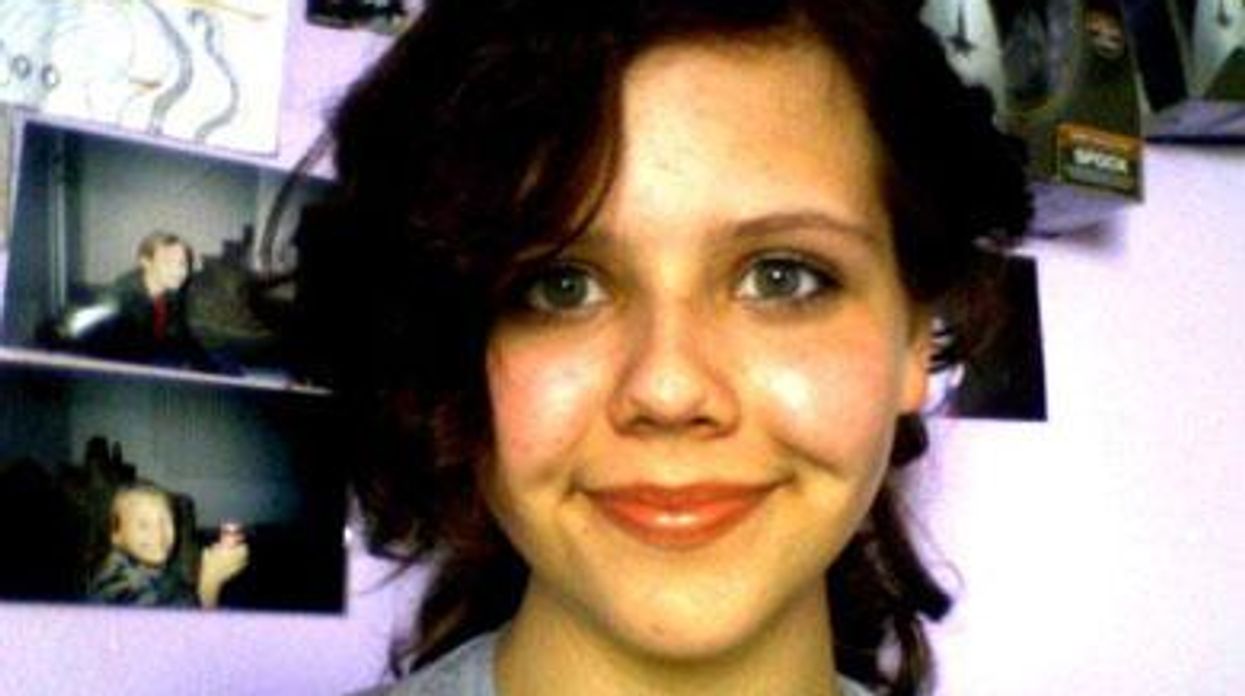
CONTACTAbout UsCAREER OPPORTUNITIESADVERTISE WITH USPRIVACY POLICYPRIVACY PREFERENCESTERMS OF USELEGAL NOTICE
© 2025 Equal Entertainment LLC.
All Rights reserved
All Rights reserved
By continuing to use our site, you agree to our Privacy Policy and Terms of Use.
We need your help
Your support makes The Advocate's original LGBTQ+ reporting possible. Become a member today to help us continue this work.
Your support makes The Advocate's original LGBTQ+ reporting possible. Become a member today to help us continue this work.
Almost every week we find ourselves at The Advocate running a new story about an LGBT middle- or high-school student being beaten, harassed, or bullied -- many have taken their own lives because of such abuse. So we asked our readers to send us their bullying stories and share how they're surviving this treatment or how they got past it. Here's the third installment in a series of tales from the trenches.
PART IV
Tuesdae Youngberg: A Change of Scenery Led to a Happier Education
Seventh grade started out very quiet for me. I was fairly invisible around my middle school. Then, around November 2005, I cut off all my hair into a pixie cut. Suddenly I was the most visible presence in the school, and not in a good way. I was called "fat," "ugly," "dyke," "lesbian," and basically any and all other insults that 12- to 14-year-olds could come up with. I was miserable, I hated myself, and I attempted suicide in February 2006, just three months after cutting my hair.
Before I finally transferred to a much more tolerant school in February 2008, I was bullied extensively for four years, ranging from verbal and mental to physical and sexual abuse from classmates. At the new school, I wasn't bullied, and I actually felt safe. I officially came out in September 2010, and I have never been so happy or so comfortable in my own skin.
Logan Hall: Taking Teachers to TaskMany teachers discriminate without even knowing it. This became apparent to me last weekend at my homecoming dance, when my freshman English teacher tried to kick me out of the dance because my "pants were too tight." Although she claimed to be following regulation, there were countless girls at this dance wearing dresses that fit like gloves and were shockingly short. Now, don't get me wrong girls, if you've got it, flaunt it, there ain't nothin' wrong with that! But, I think it is extremely hypocritical of my teacher to let all of the scantily clad girls by without batting an eyelash, and then inform me that I have to go home and change my pants before I can enter the dance.
This was not the first time this teacher had targeted me, but it was the time that made me aware as to how little tolerance is actually shown by many teachers who claim to be progressive. The first time she targeted me was one day in freshman English when I referred to her as "Mrs. G" rather than her full last name. She pulled me out of class and told me that "my level of enthusiasm could be interpreted as sexual harassment." I was so taken aback by this that I lost my composure and replied that, "I would love to see her write me up for sexual harassment." She then backed down, but warned me about being so "enthusiastic," in the future.
I live in a very liberal area. While I have experienced this and several other run-ins with neglectful teachers, I cannot imagine what LGBTQ youth in areas that are more conservative undergo in schools. Negligence and discrimination on the part of teachers is not only morally wrong, it is barring our education. Teachers need to understand that no matter what they believe themselves, if they let it affect their teaching, it immediately becomes inappropriate and unprofessional. My love of learning has definitely at times been called to question when I have reflected on the way some of my teachers have treated me, and I want to make a change so that other kids in similar or worse positions than mine can be truly successful in an open environment.
PART III
James Ryder: The Bullying Starts Early for SomeI have noticed that very little attention is given to LGBTQ bullying prior to middle and high school. For those of us whose gender expression is slightly different than our heterosexual counterparts, verbally denying any homosexual tendency is no defense against bullying. In elementary school I was constantly tormented by my peers. Daily I was called names, treated like I was disgusting, and, in one case, had bodily injuries of mine [a broken arm from a fall] applauded. Do you think that kids in elementary schools are unable to feel depression? Do you think kids in elementary school aren't capable of being just as vicious, if not more, than their middle school and high school counterparts?
There was some resolution, however, and I believe it is the reason I was largely ignored by my peers later in my education. One of my teachers, Ms. Amy, overheard the students in my fifth-grade classroom bullying me, throwing things at me, and calling me names like, "Gay f****t." Angered by this, my teacher stood up and took me and the apparent ringleader of the group out into the hallway.
"Are you calling him gay?" she asked him.
The kid was speechless, and probably afraid of being punished. "Being gay," she said, "Is a terrible, horrible, disgusting thing. You should never call anyone that." She then asked me, "Are you gay?" Of course, being only 10 years old or so and totally fearful of any label, I quickly answered, "No."
The students did not pester me after that point until an incident in the eighth grade that was settled rather quickly by one of my strong female friends. And while Ms. Amy's intention was misguided (she did send the message to the students that being gay was "disgusting") her accomplishment of ending the students' bullying makes one point strikingly clear: teacher intervention in classrooms does influence bullies' behavior, and can potentially stop bullying altogether.
David Mansfield: When Parents Condone Violence
Jeff followed me home from school. As onlookers cheered and taunted, he beat me up and broke my jaw. When I returned to school, I was called into Wolfe's office, where I met Jeff's father. His father admitted to both of us that he instructed his son to assault me.
Immediately following this, Wolfe turned to me and told me he thought I brought the attack on myself, followed by, "but I'll give you the benefit of the doubt." When I told my mother this, she responded, "Well, I think he really was trying to give you the benefit of the doubt."
I spent six weeks going to school with my mouth wired shut. I endured taunts daily such as, "you deserved it" along with the usual homophobic remarks. My own sister would taunt me with inappropriate remarks about my jaw wiring.
Amber Bauer: Sometimes Your Peers Will Stick Up For You
Throughout
my time in school I was bullied for my height. I was the shortest in
class, and even now I'm only 4 feet, 8 inches. I wasn't bullied for my
sexuality until ninth grade, when I came out as bisexual shortly after
getting out of a sexually abusive relationship that had held me for two
years.
When I did come out, I was met with a mixture of
reactions. My ex-boyfriend tried to slam my head into a brick wall, then
refused to apologize despite my friend's hand being around his throat.
His reasoning was that he didn't want to "give the dyke the
satisfaction."
Not even a month later, I had one of my classmates
from German class spray white board cleaner in my face while I was
talking to a friend. She thought that I was attracted to her; I wasn't.
After all, I'm not attracted to stupid, and she was stupid. Imagine a
younger, thinner version of Snooki -- that was her, and she believed that
"rosa" was a color in the German flag. As far as I'm aware, she wasn't
punished despite lying to the principal about what happened. The teacher
was out of the room, so she couldn't verify. All she had to go off of
was me being in the bathroom cleaning the liquid off of my face and
doing my best not to burst into tears.
I managed to do so until
something really beautiful happened. When I finally walked out of the
bathroom, my classmates told me that she and her friend were in the
principal's office. They had apparently bragged about spraying me with
the cleaner up until the point that they reached the office. From there,
the principal had called the room to ask what happened, and the entire
class told him that she did in fact spray me with white board cleaner
due to my sexuality. When I went home, I told my mom what happened, but
not their reasoning for it. My mom did nothing.
A year later, I
came out as lesbian and I actually had only one other instance with
harassment after that, unless you count the numerous times of hearing
"that's so gay" in the halls. I was walking in the hallway when two boys
walked past and loudly stated that they "fucking hate dykes;" the
teacher in the hall did nothing.
PART II
Tony Holland: When You Can't Tell Your Parents You Need Help
The first memory of gay bashing I had was in the fourth grade, when I decided to show up for school in daisy dukes, cowboy boots and a T-shirt that was tied in a knot on my side. That was the day it all began.
I endured pure hell for the rest of my school days. And I couldn't tell my parents about the abuse because then I would have had to come out of the closet, and that's something I never thought I would do.
I was beaten up at the bus stop, teased in school, had rocks thrown at me, and my book bag turned inside out. I quit riding the bus my first year of high school because the teasing was so bad. There would be days when I couldn't find a ride, and I would wait until all the buses were gone so that I could call my momma and have her come get me.
I remember one instance when I was shot in the eye with a paper football that was shot from a rubber band; it swelled my eye up.
I always wanted to come out but never had the courage. I remember my dad would see something on TV and always be like, "f****t this" and "f****t that." When a friend once told my parents that I was gay, they confronted me about it. My dad said he "wouldn't have a f****t living under his roof." So I decided then and there that I was never going to tell them that I was, indeed, a homosexual.
For years, I endured it, so much to the point that I tried committing suicide on quite a few occasions. One day I woke up and decided it was time to just come out. I had been seeing everything on TV about Proposition 8 and the NOH8 campaign, and I wanted to be a part of that so badly. I tried for at least two weeks to figure out how I was going to do it. I would get off of work and dial my parents' number but never had the courage to hit the talk button. I would just sit there and cry, for so long, then go inside and cry myself to sleep.
Then one night at work I decided to see what I would say in a text message. I inserted their names and typed out a very short, yet clear text message that read, "Momma, Daddy, I don't care if you never talk to me again but there is something I have to tell you... I'M GAY!!!!!" I was reluctant to send it and incredibly nervous at the same time, but as a guest walked in I just hit the send button and waited for the shit to hit the fan. Boy, did it ever.
My dad called me crying; he was so angry. Everyone else was cool with it. And although it took him a while to get used to my news, my dad eventually came around. It's still not something we discuss a lot. We're not Facebook friends because he doesn't want to know the details of my life. I think I have always known I was gay, and even my dad will now say he's known since I was three.
Some advice to those who are being bullied and are afraid to come out: just do it! Stand up for yourself, be who you are, and don't be ashamed. If you ever feel suicidal, please call someone -- a friend, a family member, even the suicide hotline. My dream is to some day open an LGBT center in my hometown. It will be a place where LGBT kids and adults can go and be free to enjoy life. And to the parents out there who don't accept your children: remember, just love them unconditionally and understand that if you bully your kid, you bury your kid. Always remember: we were born this way, baby
Christopher Allen: A Wake-Up Call on Society's Evolution
A fellow student had blatantly and unapologetically written the Bible verse "Leviticus 18:22" on the dry-erase board at the front of the class. According to popular interpretations, this particular verse condemns love between two men as an "abomination." The smirk on Zack's face ensured that there was no mistake: this Bible thump was being directed at me, a classmate who was openly homosexual.
It was Friday morning in my high school French class. Our teacher had allowed students to use a space on the dry-erase board for anecdotal quotes or inside jokes between people in other classes. This ritual of writing on the board had started innocently enough, with people jotting quotes from Ghandi, Einstein or Dr. Martin Luther King. One student, unfortunately, felt that it was appropriate to use our space on the board for preaching, in a public high school no less.
A day earlier, Zack had written a verse from the Bible that condemned atheists and non-believers in Christ. My best friend Chelsea, who sat next to me in class, happened to be both a lesbian and an atheist. She spoke up to our French teacher, Madame Burton, who, not wanting anyone to be uncomfortable or offended, promptly erased the quote. It seemed fairly obvious that Zack was somehow surprised, even indignant. His actions the next day would push these boundaries even further.
There it was, clear as day the next morning. Zack had written these words: "Though shalt not lie with a man as one does with a woman. It is an ABOMINATION." The last word he wrote had been capitalized and underlined. I was appalled. I stared at the board vehemently, and the more I looked at those words, the angrier I became. By the time the bell rang and Madame Burton walked in, I was fuming -- trembling with rage. I had never in my life been more angered.
"This is offensive, and completely uncalled for!" I shouted, my foot tapping angrily.
"All right Chris, you need to calm down," Madame Burton said in a placating tone. I was visibly angry and was, by this point, putting on a real show of emotion.
"I will not calm down!" I refused. "This is completely uncalled for!"
Zack's continued smirking and obvious enjoyment in upsetting me did not improve the situation. I demanded to see the school counselor immediately. Thankfully, both Chelsea and I were permitted to leave class for the guidance office.
Chelsea, who was just as upset as I was, conveyed her emotion in a different manner. She ran ahead of me while Madame Burton signed me out of class and was in tears by the time I made it downstairs. There, I managed to fully express how angry I was to our guidance counselor, who sympathized with us. We were then told that this incident was more than a case of discrimination; it was in fact, harassment. Our counselor allowed Chelsea and I to sit in the library for the remainder of the class period. I was still too angry to even look at Zack, but I was thankful. I had barely known this kid, and yet he had chosen to harass us based on our sexual orientations.
I felt disturbed that someone could still think this way. I managed to surround myself with friends that had accepted me for who I am. I was very much under the impression that, apart from conservatives and evangelical groups, society had generally accepted gays and was much more tolerant than it had been in the past. This incident was a reality check, and my bubble of safety and acceptance had been burst. It reminded me that the true abomination is that much intolerance and bigotry must still be challenged before gays will be treated equally.
Transitioning into the gay community and being a part of it have made me who I am today. But it meant enduring very traumatizing situations.
In middle school, I came out as being bisexual. I had a feeling then that I should be dating boys but had a more romantic connection toward girls. I told my best friend, and she worried I would begin to hit on her. We stopped speaking.
Every day in the cafeteria, I was bullied for being gay. My peers would throw bagels, coins, and plastic knives at me from across the room. In the hallways I would hear words such as "dyke," or "f****t," and it would just upset me beyond belief. Because of it, I didn't really talk to anyone. I was that "short, scary, emo girl in the corner of the room," as my friend puts it now. It just felt like the world was out to get me and I was completely alone.
Tenth grade was the year that I came out to my family and the school as being a lesbian. The people in my grade had matured a lot by then, and I didn't get called anymore names. I got really lucky with my family because they accepted me and loved me for who I was. However, in eleventh grade, that all changed.
In a family management course I had taken, the teacher talked often about my sexuality and asked questions as if it were a joke. "Oh if you and your girlfriend were to have babies, who would have the kids? Would you play rock, paper, scissors to see who gets to have the child?" These comments and questions coming from the teacher and my peers really irked me. I didn't know how to handle it.
Once I became a senior -- and the new freshmen came into the high school -- the bullying started to get serious again. I'd be walking through the hallways and a girl I didn't even know would call me a dyke and tell me to go meet up with my girlfriend in a demeaning way, as if she were disgusted by it. I'd be walking through the hallway, holding my girlfriend's hand or holding her around her waist after school and people would come by making gagging noises to the point where my girlfriend would almost be crying. They'd bother her for being gay more often than me because she was younger than me.
However, what they don't know is that you insult one of us, you insult all of us.
PART I
Watch Florida's Will Shepherd Tell His Bullying Story
Danielle Lewis: Turning Her Taunts Into Teachable Moments for Other Youth
I grew up in a small town, everybody knew everybody by name. I was an avid member of my mom's church, raised in a "Strict Southern Baptist" way. So when I started to question my sexuality, basically everyone knew.
It was fine at first, small things started happening. It was little bumps in the hallways, "accidentally shutting my locker door," and even "accidentally spilling something on me." I was in middle school at the time. I thought when I got into high school everything would change. It did, but not the way I had thought.
This one girl just got under my skin every day. She started saying "Dan the man!" "Hey Dan, when is that sex change scheduled for?" "Hey, did your parents sign the forms for the sex change yet?" "Did you get the sex change yet?" "Hey Dan, heard you got the sex change!" She said it because she knew I was confused about it. Everyone knew I might be "The G Word." What was worse, every day when this student would make a comment, there was a teacher not even three feet away, yet conveniently she didn't hear anything.
I started cutting... burning, anything I could do to ease my pain. I ended up in hospital after hospital until I was pulled out of school. I ended up in residential [treatment] and on so many medications. I stayed at that day school until they transferred me back full time to my high school. I was terrified... but I started giving speeches to the health class about bullying, and it seemed to hit home for a lot of people.
I'm 20 now, graduated high school on time, in a school I was terrified of, with honors. I've graduated college, and I go back every semester to teach that same bullying class. I'm proud to say I made it. But if it weren't for the Polaris Center, a few teachers at Stafford (Connecticut) High School, the hospitals (six different ones), and most of all, my family, I wouldn't be here today. I wouldn't be here because of bullying.
What Hasn't Changed: Michael McGaw Recalls Bullying from Four Decades Ago
I was bullied in the seventh, eighth, ninth, and tenth grades for being "a sissy boy." But the worst of what happened came in the eighth grade.
Upon starting at a new school after moving from Texas to Maryland, I was constantly called "f****t," "sissy," "queer," "homo," "cocksucker," and other names in the same vein. I was shoved, pushed, tripped, had my books stolen or destroyed and their remnants stuffed through the vent-holes into my school locker.
Although I complained to the school administrators about what was being done to me, nothing was done to my tormenters. What I was literally told was this: "You'd best avoid those boys."
I was eventually cornered in the gym showers by four boys, one of who poked me in the stomach with a baseball bat and then watched while the others beat me. They forced me to the ground, then kicked me in the stomach, head, groin, buttocks and urinated on me while calling me a "homo," a "f****t," a "queer." That's what happened to "cocksuckers," they said, and left me stunned on the floor.
No one watching did anything to stop what was happening. I missed a week of school while I recovered from my injuries. Nothing ever happened to those who beat me.
While I never again experienced physical abuse like that beating, I continued to be verbally harassed. And the pushing, shoving, tripping and knocking my books out of my arms lasted through the end of the school year. I missed so much class time that I had to recover nearly every subject during summer school.
I think the worst part, in retrospect, wasn't the physical beating, but the on-going teasing and name-calling. I was a lot more ashamed about the name-calling when I finally asked someone what "f****t" and "queer" and "homo" and "cock sucker" actually meant. I hadn't known those words. Yes, I am gay, I know that now; but at the time this was all happening to me, I had no idea of my sexual orientation. I was beat up for being gay when I didn't even know what gay was.
This happened 40-plus years ago... I'm now 55. Isn't it time for this kind of treatment of kids who are "different" to stop?
Nbroverman
From our Sponsors
Most Popular
Bizarre Epstein files reference to Trump, Putin, and oral sex with ‘Bubba’ draws scrutiny in Congress
November 14 2025 4:08 PM
True
Jeffrey Epstein’s brother says the ‘Bubba’ mentioned in Trump oral sex email is not Bill Clinton
November 16 2025 9:15 AM
True
Watch Now: Pride Today
Latest Stories
Texas city will remove rainbow crosswalks under orders from Trump administration
December 18 2025 11:07 AM
Six key takeaways from Trump's speech to the nation, including 'transgender for everybody'
December 17 2025 10:51 PM
Marjorie Taylor Greene’s bill criminalizing gender-affirming care for minors passes with Democrats’ support
December 17 2025 6:47 PM
True
I didn’t just run the world’s major marathons. I changed them
December 17 2025 4:31 PM
Pam Bondi wants FBI to offer bounties for ‘radical gender ideology’ groups, leaked memo shows
December 17 2025 3:17 PM
Rock Hudson had a 'legendarily large penis,' Armistead Maupin says
December 17 2025 3:05 PM
California councilmember blames daughter becoming a lesbian on sexual trauma
December 17 2025 2:26 PM
California hospital will continue youth gender-affirming care after families protest
December 17 2025 11:18 AM
Tennessee whistleblower says library board chair sought private data as part of state's book purge
December 17 2025 7:00 AM
Lesbian federal worker pleads for answers about wife trapped in immigration detention limbo
December 16 2025 5:08 PM
Trending stories
Recommended Stories for You

Neal Broverman
Neal Broverman is the Editorial Director, Print of Pride Media, publishers of The Advocate, Out, Out Traveler, and Plus, spending more than 20 years in journalism. He indulges his interest in transportation and urban planning with regular contributions to Los Angeles magazine, and his work has also appeared in the Los Angeles Times and USA Today. He lives in the City of Angels with his husband, children, and their chiweenie.
Neal Broverman is the Editorial Director, Print of Pride Media, publishers of The Advocate, Out, Out Traveler, and Plus, spending more than 20 years in journalism. He indulges his interest in transportation and urban planning with regular contributions to Los Angeles magazine, and his work has also appeared in the Los Angeles Times and USA Today. He lives in the City of Angels with his husband, children, and their chiweenie.





























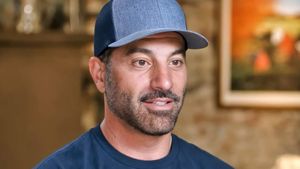

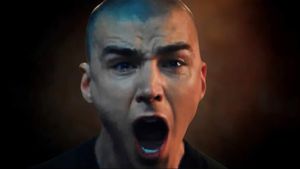












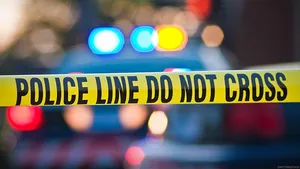














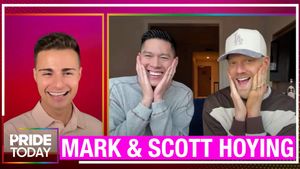

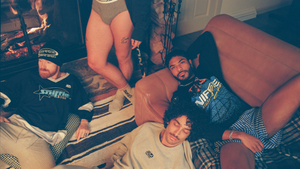
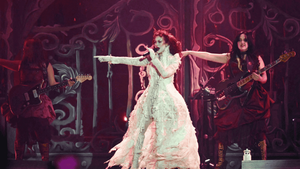




Charlie Kirk DID say stoning gay people was the 'perfect law' — and these other heinous quotes